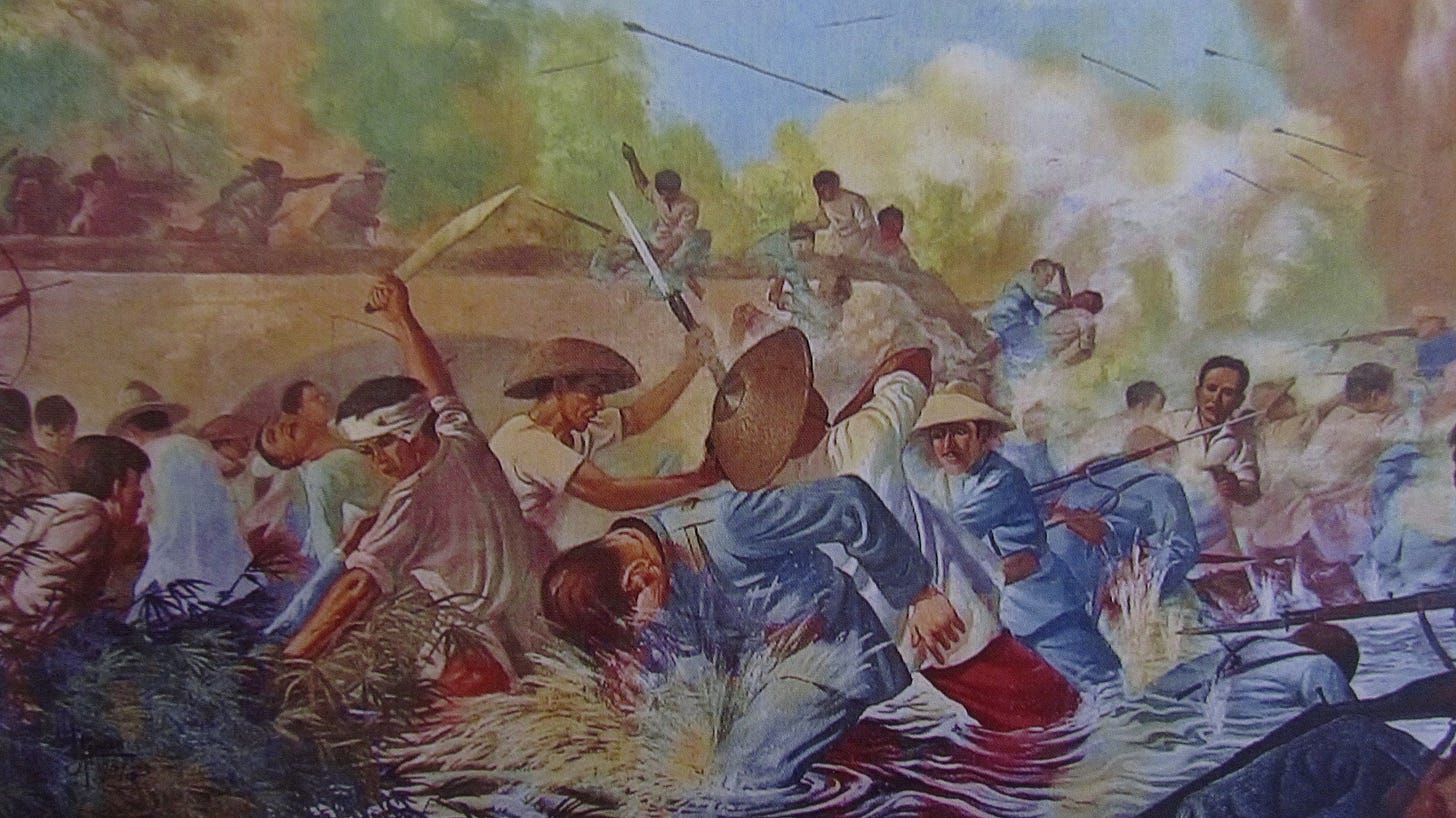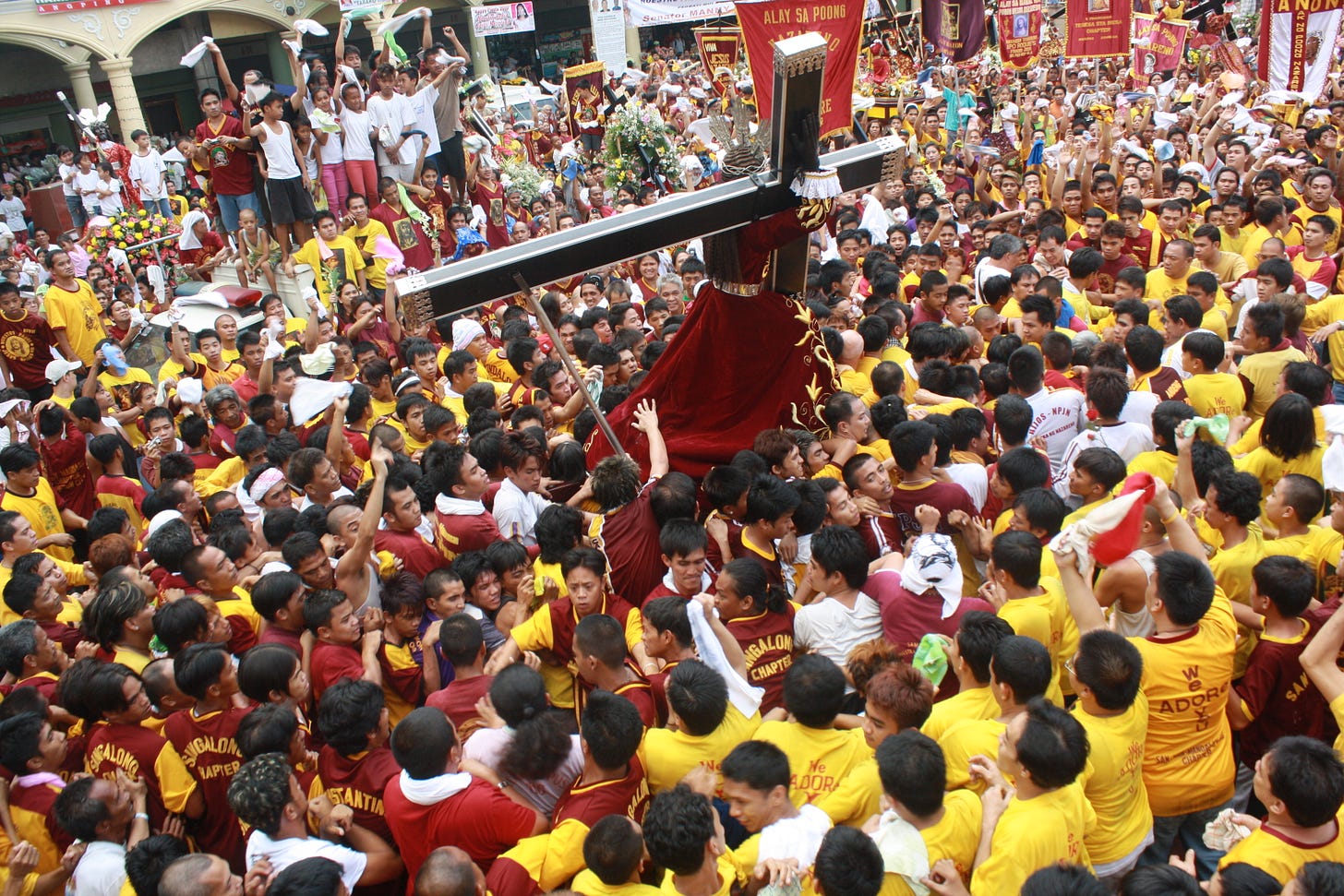Highlights
Both collectivistic and individualistic cultures have their beneficial and harmful qualities, and if we are to grow as people in the context of modern society, we can look at their useful qualities. In particular, we can look at how connection and confrontation manifest in Filipino psychology.
The concept of shared humanity is inherent in Filipino language. KA, the syllable that precedes many relational words such as kapatid (sibling) and kaibigan (friend), is represented in the ancient Tagalog script as two wavy lines connected by a line. A wavy line is HA, which can be interpreted as hangin (wind) or hininga (breath, spirit).
Confrontational values in Filipino psychology include lakas ng loob (inner strength), pakikibaka (sharing in the struggle), and bahala na (trust in the divine, despite uncertainty). These attitudes are usually seen when a person fights for dangal (honor) and katarungan (true justice).
Cultural Attitudes
We Filipinos are said to be “collectivistic.” This is placed in contrast to other, usually western, cultures, which tend to be “individualistic.” Collectivistic cultures tend to value stability through collaboration and resiliency. Individualistic cultures often promote ambition, fortitude, and personal freedom.
Issues with Collectivistic Cultures
One culture is not better than the other, but both can have their extremes. In collectivistic cultures, those who ask questions are reprimanded for disrespecting authority. When a child questions their parents’ reaction to whatever they’ve done, the parents might say, “Aba, sumasagot ka ah!” (Wow, you’re answering back!) During the lockdowns, those who wouldn’t follow protocols (such as wearing masks and face shields) are said to be “pasaway” (stubborn/rebellious). This is a term that is meant to call people out and shame them for their actions. That said, people in collectivistic cultures usually avoid direct confrontation, which can be interpreted as a way for a person to care about another’s feelings—but the problem with this is that you wouldn’t find out if someone doesn’t like you until after everyone else had already heard about your behavior. And since we value the opinion of others regarding those who belong or don’t belong in a group, this attitude can destroy relationships even before you had the chance to address it. Groups are important to us, so we try our best to take care of interpersonal relationships. Those who don’t have empathy (hindi marunong makiramdam) or those who don’t seem to be interested in learning and following the existing group dynamics (walang pakisama) are forced out. They become out of the loop, which is very dangerous, because networks and privileged information (such as gossip and unofficial news) are the best ways through which anyone can navigate a vague system where the rules are largely unspoken.
Issues with Individualistic Cultures
Individualistic cultures promote the idea that those who work hard can achieve anything they set their mind to—this creates a fear of being left behind. The philosopher Alain de Botton called this “status anxiety.” In these societies, one’s perceived position in society is very important because it gives a person power, comfort, and time. Those who have no status are called “nobodies,” and are considered invisible. Anyone who is incapable of producing or consuming is considered dysfunctional—a condition that is often treated through expensive prescription medication. Those who fail are labeled “failures,” and those who are overwhelmed with the pressures and demands of society are said to lack the mental and spiritual discipline necessary to be a productive, contributing member of the social machine. Rather than it just being a part of life, work becomes life. Care for the self becomes an individual’s responsibility rather than a communal effort. You have to set aside time to rest. “Self-empowerment,” usually in the form of self-help propaganda, subtly promote isolation and the exploitation of others to achieve one’s goal. We are told that we have to choose between building a stable future and having a social life. We are told to give up the small joys in life—like unique coffee drinks, a dinner with friends, and vacations—if we want to succeed. The individual is removed from the context of larger societal issues, and whatever privileges or disadvantages they have (e.g. socioeconomic status, family connections, race and ethnicity, gender expression and sexual orientation, etc.) are believed to have no impact whatsoever on whether or not they achieve their dreams.
In modern society, where identity is fluid and transnational, the beneficial and harmful qualities of these culture types are starting to overlap. Globalization has given us access to foreign products and attitudes. Filipinos—especially those living in the major cities—have become more westernized, and are therefore more prone to individualistic issues of anxiety and isolation. Yes, we still have our own cultural values, expressed through language and behavior. Looking at these values are important, but not as a way to force outdated social norms. We have to look at what helps and what doesn’t, in the context of the Philippine culture.
Collectivistic cultures such as ours value connection—perhaps this is why we often top the global rankings of social media users. Many of us sacrifice our own comfort so that the next generation could live a better life. Individualistic cultures value self-improvement, growth, and healthy boundaries. Warm and honest confrontation, especially in the face of oppression, can change systems and make living conditions better for everyone. Now, as a collectivistic culture, how do the qualities of connection and confrontation naturally manifest in our psychology?1
Connecting with Others
In baybayin, the ancient script of the Tagalog, the symbol for HA (ᜑ) is a wavy line. HA is the first syllable of hangin, which means “wind.” It also represents the human soul, which is hininga (breath). When a person passes away, we say that their breath ended or was taken from them. The syllable KA (ᜃ) is represented by two wavy lines connected by a straight line:
KA is the first syllable of many relational words, such as ka-patid (sibling), ka-ibigan (friend), and ka-sama (companion). If we look at the word for friend, kaibigan, we can see that it’s a combination of ka (sharing) and ibigan (loving). Thus, kaibigan might be “sharing in the act of loving.”
This soul connection is not two individual souls; it’s different people sharing one soul. Kapatid, for example, means cut. Another word for sibling is kaputol. In casual conversation, this is summarized to utol or ‘tol, used in the same way as one might use the word “bro.” Putol means “cut,” and in this case, it means “fragments of one larger thing.” So, one might say that siblings are cut from the same thing.
Our attitude towards romance is that it is somehow fated—that people are destined together, and no matter how much we try, “Kung para sa’yo, babalik at babalik din” (If it’s for you, it will keep returning). People in a romantic relationship might call each other kabiak—literally, a fragmented piece.
The priest and psychologist Fr. Jaime Bulatao said that our roots go deep into the earth and intermingle with each other. We are connected in ways that may not always be visible, and it is this attitude that will allow us to achieve the deepest level of kapwa, which is pakikiisa—that is, oneness. Only with shared identity can we hope to have collective action.
Confrontative Values
Dr. Virgilio Enriquez, one of the pioneers in the local movement to indigenize psychology, observed that Filipinos have both “accommodative” and “confrontative” values. Accommodative values foster connection—this includes hiya (proper decorum, inadequately interpreted as “shame”), utang na loob (solidarity, inadequately interpreted as “transactional obligation”), and pakikisama (companionship, inadequately interpreted as “conformity”). Confrontative values give a person the strength to fight for what they believe is right. This includes lakas ng loob (inner strength), pakikibaka (resistance), and bahala na (determination despite uncertainty, though inadequately interpreted as “fatalism and learned helplessness”).
Pakikibaka is collective action, as expressed through a shared vision and goal. It is the attitude of sharing in the struggle. People don’t stand up for others, they stand with others. A common battle cry in public protests against exploitation and oppression is “Makibaka, huwag matakot!” (Stand with us, do not be afraid!) Filipinos are usually seen as passive-aggressive and non-confrontative, but this is often a very colonial way of interpreting our behavior. The colonizers then would perceive us as submissive and easy to dominate—attitudes that are associated with passivity and non-confrontation. From an insider’s perspective, we know that we act this way because we value harmony over disorganization. But we know where to draw the line, especially if it affects a person’s honor (dangal) and if it goes against our notion of fairness and true justice (katarungan). Kalayaan (freedom) is also a motivation to do pakikibaka.
Some Expressions of Strength
During the Spanish colonial era, there were subversive intellectuals who wrote books speaking up about oppression and exploitation and revolutionaries who charged at the colonial armies with rabid passion, clutching their amulets. They are said to have had lakas ng loob. They fought for kalayaan.
The millions of Filipinos who gathered in EDSA to protest the dictatorship fought for katarungan, in the name of those who have disappeared and those who were tortured just for asking questions. This was a peaceful protest, now known in history as the People Power Revolution.

The yearly ritual of moving the statue of the Black Nazarene across Quiapo gathers hundreds of thousands of people, who go there hoping for healing in desperate times. They surrender to the providence of the divine. In this feverish mass of public devotion, people are merged in spirit—the transcendent extreme of bahala na.
Support the work and access exclusive content by becoming a member on Patreon. 🌞
When we talk about “culture,” we have to recognize that we tend to overgeneralize. The field of Filipino psychology has been criticized as giving more attention to the urban experience—that is, Tagalog, Christianized, and Manila-centric. The Philippines is a multi-ethnic archipelago, yet Tagalog terms such as kapwa are applied as an overarching framework to understand other communities. That said, we also have to acknowledge the fact that people don’t just stay put in one place. Our identity is dynamic; it shifts through space and time. My mother was from Negros island and my father from Davao City. They met in Laguna and we now live in Rizal. I was educated in Quezon City. I can speak three languages—English, Tagalog, and Hiligaynon. Being born in Bacolod, I consider myself Ilonggo, yet since I spent most of my life in the CALABARZON region, I am also Tagalog. These various influences have created in me my own cultural nuance, yet I identify as “Filipino” in a practical (that is, legal) sense. So when I talk about “culture” here, I speak in a very, very general way. I hope you take what resonates and question what doesn’t—you may use the comment section below to begin a discussion.







The solidarity of Filipinos and diasporic Filipinx with Palestine has helped to open up my understanding of these concepts. It's been moving to see the ways that many diasporic Filipinx have raised their voices and taken to the streets in solidarity. I undertand the ways in which this act of resistance and love is also a call for others to do the same. It's been made really clear to me how standing in solidarity helps to bring safety to others and how individualism discourages taking on this risk.